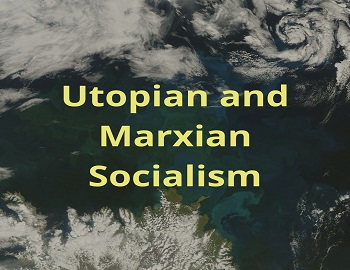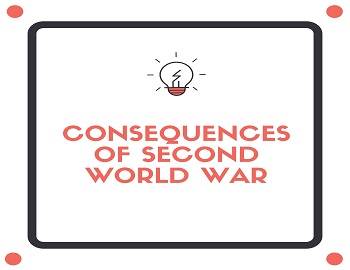Table of Contents
Socialism- Utopian and Marxian Socialism:
| Industrialization had polarized society into the capitalist and the workers. Some thinkers of England and France emphasized the idea that the condition of workers should be improved. The spirit of public welfare and efforts for improving the condition of workers gave birth to socialism. Roughly speaking, socialism aims at establishing equality in society. Equality means- economic and political freedom. It involves equality of opportunities, the right to work according to ability, equal pay for equal work and a drive to fulfil the fundamental needs of life. The ultimate goal of socialism is to eliminate class struggle and form a classless society. In order to achieve these objectives, government control over the production and distribution of important things is considered the right approach. |
Utopian Socialism:
| The early socialists talked about the creation of a new and glorious society based on equality. However, the methods they suggested for the establishment of such a society were impractical. Hence, these socialists were called utopian socialists. The French aristocrat Saint-Simon was one of the first utopian socialists who advocated public control of property through central planning, in which scientists, industrialists, and engineers would anticipate social needs and show the ways to meet them. Another prominent utopian socialist was Robert Owen, an industrialist himself, who established several factories that were both profitable and more humane. He talked about the need to change the conditions to change the people. He established a model of social organization, New Harmony, which was a self-sufficient, cooperative community in which property was commonly owned. Some other early socialists were Charles Fourier, Louis-Auguste Blanqui, Pierre-Joseph Proudhon, and Louis Blanc. The system is based on the premise that if the capitalist class voluntarily surrenders their rights over means of production to the State or workers the state of workers and their living conditions will improve and poverty would get abolish. |
Marxian Socialism:
| The most prominent socialist thinkers were Karl Marx and Friedrich Engels. They insisted that capitalism had to be completely overturned in order for society to advance to a state of socialism. Karl Marx gave the famous theory of Class Struggle, which talked about a new classless social order that would come into existence after the triumph of the working class and the fall of capitalism. Karl Marx and Engels presented modern socialist ideas in their writing the Communist Manifesto in 1848. Socialism came to be replaced by the word ‘Communism’ which, as Engels explained, carried the idea of common ownership. Marx and Engels, thus, became the founders of Communism. They called upon workers all over the world to unite and fight against the exploitative system of capitalism. By the time of Marx’s death in 1883, the term Marxism became synonymous with socialism. During the period, some milder versions of socialism also emerged; prominent among them being Fabianism, which emerged in Britian. The members of Fabian Socialism favored gradual changes, persuasion, and education rather than revolution. Some of the prominent Fabians included George Bernard Shaw, H.G. Wells, Graham Wallas, and Laski. The Fabian Society exercised considerable influence within Britain’s Labour Party. |
Democratic Socialism:
| After Marx, several socialist thinkers started calling for a need for revision in Marx’s theory. Foremost among the ‘revisionists’ was Eduard Bernstein, who observed that the living and working condition of the working class was not growing more desperate, as predicted by Marx, but rather improving. And thus, he concluded that the revolutionary overthrow of capitalism was neither necessary nor desirable, as the revolution could lead to the potentially tyrannical dictatorship of the working class. Democratic socialism became a prominent movement at the end of the nineteenth century. In Britian, the tradition of democratic socialism was represented in particular by the Socialist League and by the Independent Labour Party. The former was established by William Morris in the 1880s while the latter was established by Keir Hardier in the 1890s. In India, during the freedom struggle, several leaders of the Indian National Congress organised themselves as the Congress Socialist Party. The most outstanding democratic socialist of the time was JP Narayan. These socialists talked about the transformation of the society on socialist ideals but opposed one-party authoritarianism. |









Comments (No)